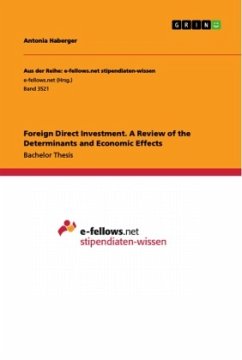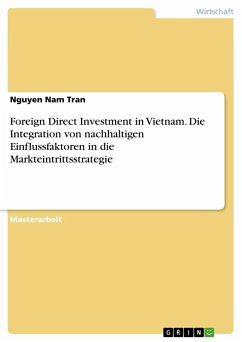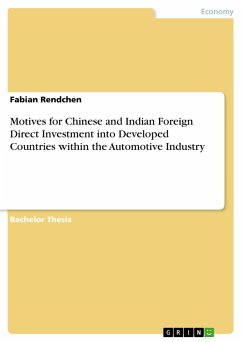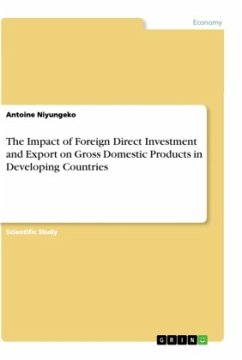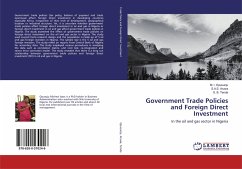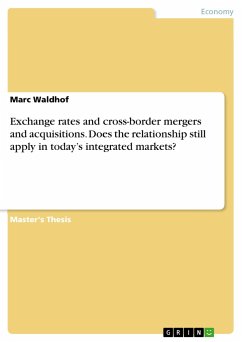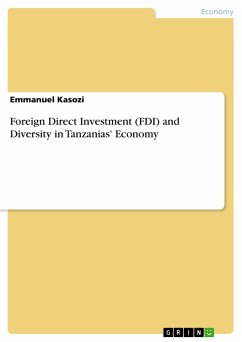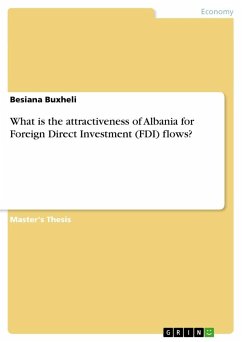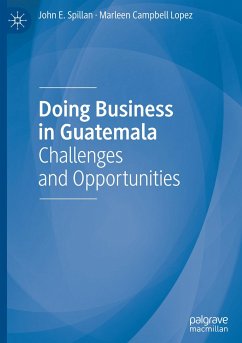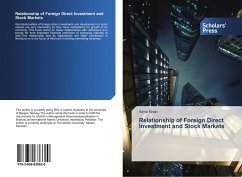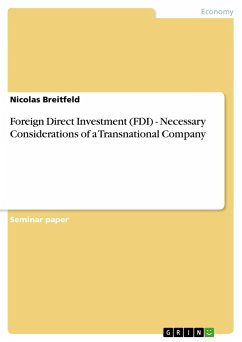
Foreign Direct Investment (FDI) - Necessary Considerations of a Transnational Company

PAYBACK Punkte
0 °P sammeln!
Seminar paper from the year 2009 in the subject Business economics - Investment and Finance, grade: 1,7, Berlin School of Economics and Law (Institute of Management), course: International Finance, language: English, abstract: Geneva, 24 June 2009 -- Global foreign direct investment (FDI) inflows and cross-border mergers and acquisitions (M&As) - the main mode of FDI - drastically declined in the last quarter of 2008, and the fall has continued into 2009, UNCTAD data reveal. FDI inflows dropped by 54% and M&As by 77% during the first quarter of 2009 as compared to the same period last year.Pro...
Seminar paper from the year 2009 in the subject Business economics - Investment and Finance, grade: 1,7, Berlin School of Economics and Law (Institute of Management), course: International Finance, language: English, abstract: Geneva, 24 June 2009 -- Global foreign direct investment (FDI) inflows and cross-border mergers and acquisitions (M&As) - the main mode of FDI - drastically declined in the last quarter of 2008, and the fall has continued into 2009, UNCTAD data reveal. FDI inflows dropped by 54% and M&As by 77% during the first quarter of 2009 as compared to the same period last year.Prospects for FDI will remain gloomy for the rest of the year, UNCTAD economists say (UNCTAD, 2009).Foreign Direct Investment (FDI) is defined by the IMF as an international investment of one company with the intention of lasting relationship. This investment has to exceed 10% of equity of the target company. Also an ambition of the management for influence should be visible. This makes the difference to aportfolio investment (IMF, 1993).The following list summarizes major requirements:· Transfer of capital· Control investment· A source of funds for foreign operations· A balance of payments flowBefore the financial crisis hit the world economy, FDI was one of the major drivers of globalization and continuously increasing with high growth rates. FDI flows over a long period of time even increased faster than world GDP growth. But as reported from the UNCTAD World Investment Report 2009 85% of Transnational Corporations (TNC)3 worldwide are negatively affected by thefinancial crisis with respective negative impacts on their investment decisions. This shortfall has also consequences to the landscape of FDI. The USA are still number one in FDI flows but a lot of emerging countries have risen in the list of top FDI inflows. This is another hint for the changes in the world. The emerging markets will more and more take over a leading position in world economics and also a stabilizing function. They will also head the recovery in FDI flow which is expected to take place in 2010.This paper will primarily deal with the TNC and their decision for FDI. Starting with the motivations, the following process and evaluation criteria, also associated risks have to be taken into account. For a complete picture including the environment a short look at the host country and the effects of FDI will be done atthe end (the decision of the TNC is always connected with espective influences from outside). Finally, all major considerations of a TNC in combination with FDI should be described.




